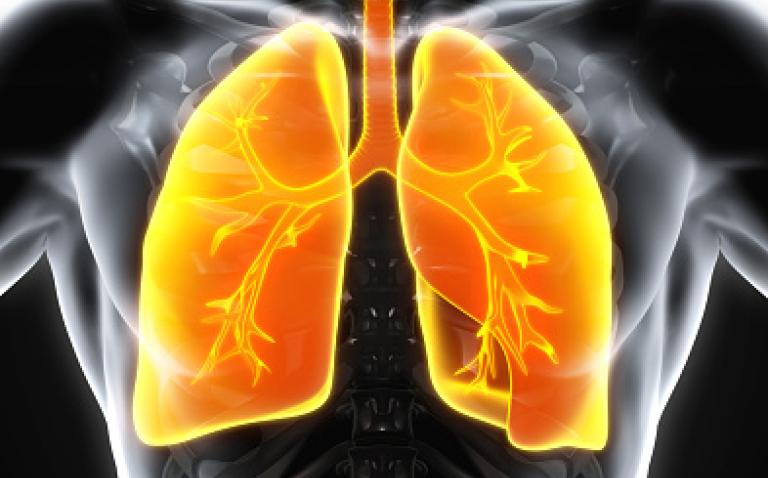Boston Scientific revealed results of a comprehensive survey, which shows the true burden of severe asthma and the daily challenges faced by people with asthma in Europe.
Uncovering Asthma, a survey of over 850 people with severe asthma from across Europe, has found that severe asthma affects a quarter of the respondents on a daily basis, with a staggering 71% feeling the negative effects weekly.
While the respondents identified their social life (32%) as the aspect which is most affected by their asthma, many also mention their working life (23%), family life (18%) and their sex life (17%) as being affected too.1 Leading asthma experts are now calling for urgent action on how people living with severe asthma are cared for across Europe.
The survey calls for people with severe asthma to reappraise the impact their condition is having on their lives, as well as discussing with their healthcare professional how to better manage it. Severe asthma affects approximately 1.5 million people in Europe,2 with some estimates suggesting nearly a fifth of people with asthma could be living with the severe form of the condition.3
Amongst those surveyed who are working or studying, nearly half (46%) admitted to having to reduce their hours or take additional days off as a result of their condition, whilst a quarter believe having severe asthma has negatively affected their careers, for example by having to change their role or even leave a job.1
“When I was at primary school, I would be in hospital around six times a year due to severe asthma attacks,” said Reah Yarworth, aged 24, from the UK, “It had a serious effect on my studies and was really worrying for my family. When I was at school, I struggled to join in any physical education classes because of my asthma; I wanted to take part and play with the other children in my class, but it was not possible. I continued to struggle as I grew up, being unable to join friends on holiday or go to the gym like other people my age.”
People with severe asthma are also often prevented from undertaking the daily activities we take for granted, such as simple household chores, gardening or seeing family and friends. The survey found nearly a quarter of the respondents have been prevented from seeing friends and family due to asthma symptoms.1 The respondents also report their sex lives are restricted by asthma symptoms, with a quarter saying asthma impacts this part of their life a great deal.1 Male respondents were significantly more likely (29% versus 18%) to report that their sex lives are negatively affected by severe asthma.
“It is clear that severe asthma has a profound impact on people’s everyday lives, as the Uncovering Asthma survey findings show that a third of those surveyed with the condition feel depressed and over a third report feelings of anxiety,” commented Dr Rob Niven, Senior Lecturer in Respiratory Medicine, University Hospital of South Manchester NHS Foundation Trust, “As a healthcare professional, it is also important to understand that a sizeable proportion of severe asthma sufferers are not responding to currently prescribed medicines, which is worrying. Many people who responded to the survey noted that better controlled symptoms would allow them to be more active, free and positive about their lives.”
There are newer, non-drug treatment options available to treat severe asthma, one of which is a procedure called Bronchial Thermoplasty (BT). Bronchial Thermoplasty is a non-drug procedure for severe asthma in patients 18 years and older. This minimally invasive procedure is expected to complement conventional asthma drug treatments, thereby improving symptom control and the quality of life of patients with severe asthma. Studies have shown Bronchial Thermoplasty has an excellent long-term safety and effectiveness profile, with evidence of long-term safety up to at least five years4,5 and durability of effect up to at least five years.5,6
“The Uncovering Asthma Report helps to highlight the challenges of managing severe asthma and important real life experiences from people who have the condition. We hope this report addresses these challenges for people with severe asthma, their families and loved ones, as well as the healthcare professionals who help manage this potentially life-threatening condition on a daily basis,” said Paraic Curtis, vice president of the MedSurg division of Boston Scientific Europe.
References
- Uncovering Asthma Survey 2015.
- European Lung White Book. Available online at http://www.erswhitebook.org/chapters/adult-asthma/. Last accessed July 2015.
- Wenzel S. Clinical & Experimental Allergy 2012;(42):650–8.
- Thomson N et al. Long-term (5 year) Safety of Bronchial Thermoplasty: Asthma Intervention Research (AIR) Trial, BMC Medicine 2011.
- Wechsler M et al. Benefits of Bronchial Thermoplasty Persist Out to 5 years in Patients with Severe Asthma, Journal of Asthma and Clinical Immunology, August 2013.
- Castro M et al. Persistence of Effectiveness of Bronchial Thermoplasty Persist Out to 5 years in Patients with Severe Asthma, Journal of Asthma and Clinical Immunology, August 2013.










